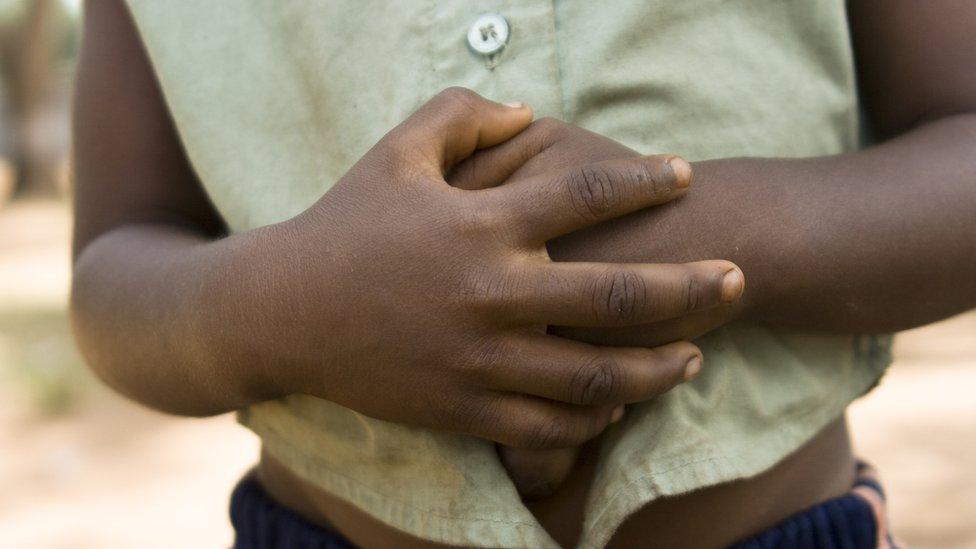FGM: More than 5,000 newly-recorded cases in England
- Published

The NHS in England recorded 5,391 new cases of female genital mutilation (FGM) in the past year, data reveals.
Almost half involved women and girls living in London, found.
A third were women and girls born in Somalia, while 112 cases were UK-born nationals.
The practice is illegal in the UK and it is compulsory for family doctors, hospitals and mental health trusts to report any new cases in their patients.
FGM - intentionally altering or injuring the female external genitalia for non-medical reasons - carries a sentence of up to 14 years in jail.
It is the second time that NHS Digital has released annual FGM figures for England.
Most of the cases were spotted by midwives and doctors working in maternity and obstetric units.
The majority had originally had FGM done to them abroad and as a young child.
Funding concerns
The NSPCC says more should be done to end the practice: "FGM is child abuse. Despite being illegal for over 30 years, too many people are still being subjected to it and it is right that health services have started to properly record evidence of this horrendous practice.
"It takes courage to report concerns as many feel ashamed or worry they will betray friends and family. But we need to end the silence that surrounds FGM to better protect children."
The National FGM Centre, which is run by the children's charity Barnardo's and the Local Government Association (LGA), tries to prevent the practice, but its director Michelle Lee-Izu is warning it could be at risk of closure if government funding is withdrawn.
Cllr Simon Blackburn, from the LGA, said the government "must act now" to secure the National FGM Centre's "long-term future" by providing guaranteed funding.
He said: "Social work provision to girls and families affected by FGM has been quickly and significantly improved through the intervention of Centre social workers, embedded in council safeguarding teams, and hundreds of referrals have been received in areas that previously only recorded a handful of cases each year.
Mr Blackburn added that the government needed to back its commitment to ending FGM in the UK "with the long-term funding required to make that vision a reality".
Grassroots reporting
Anyone concerned about someone who has suffered, or is at risk of FGM, can contact the NSPCC FGM Helpline anonymously on 0800 028 3550 or visit nspcc.org.uk.
Wendy Preston, from the Royal College of Nursing, said: "Mandatory reporting and compulsory sex-and-relationships education are important weapons in the fight against FGM, and school nurses play a vital role in both educating children and young women, and spotting those who may be at risk.
"The government must act to attract and retain school nurses, to help address the problem at grassroots level, and maintain momentum in the fight to eradicate FGM."
A government spokesman said the start-up money for the centre came from the 拢200m Children's Social Care Innovation Programme, and was designed to lead to self-sustaining work, not ongoing core funding.
But he added: "Protecting women and girls from violence and supporting victims is a key priority for this government and a personal priority for the Minister for Women and Equalities, Justine Greening."
- Published22 April 2017
- Published3 July 2017